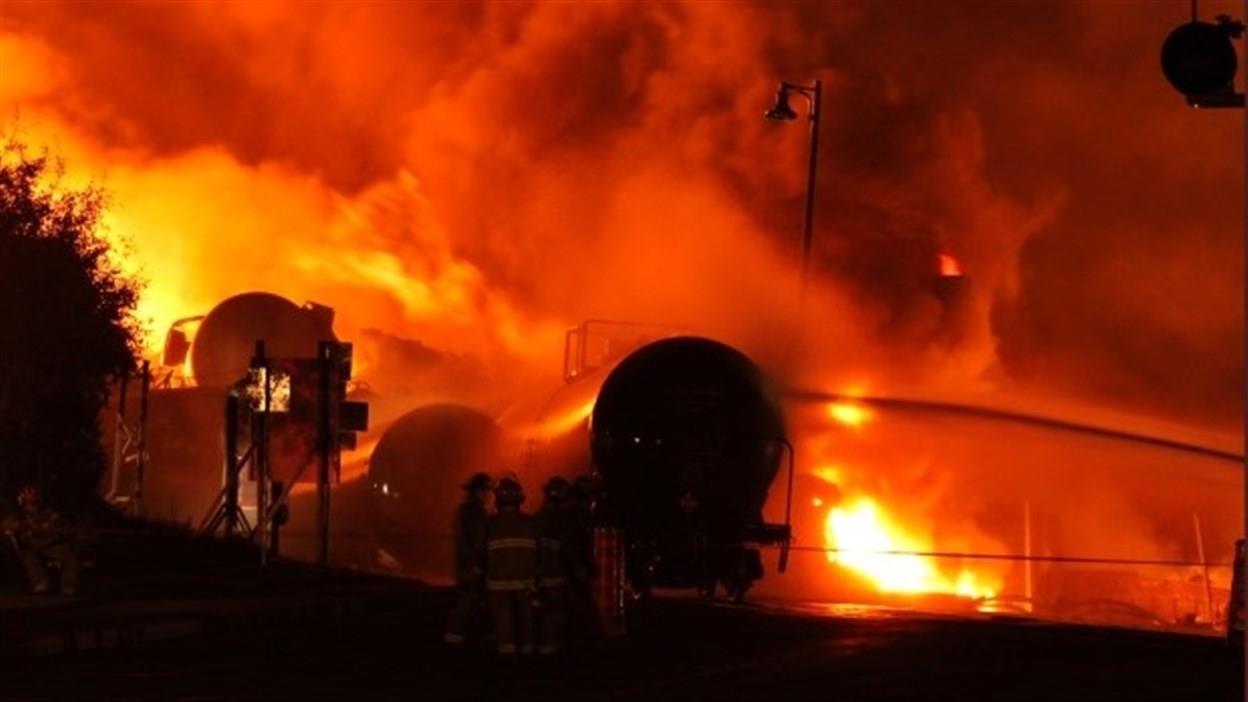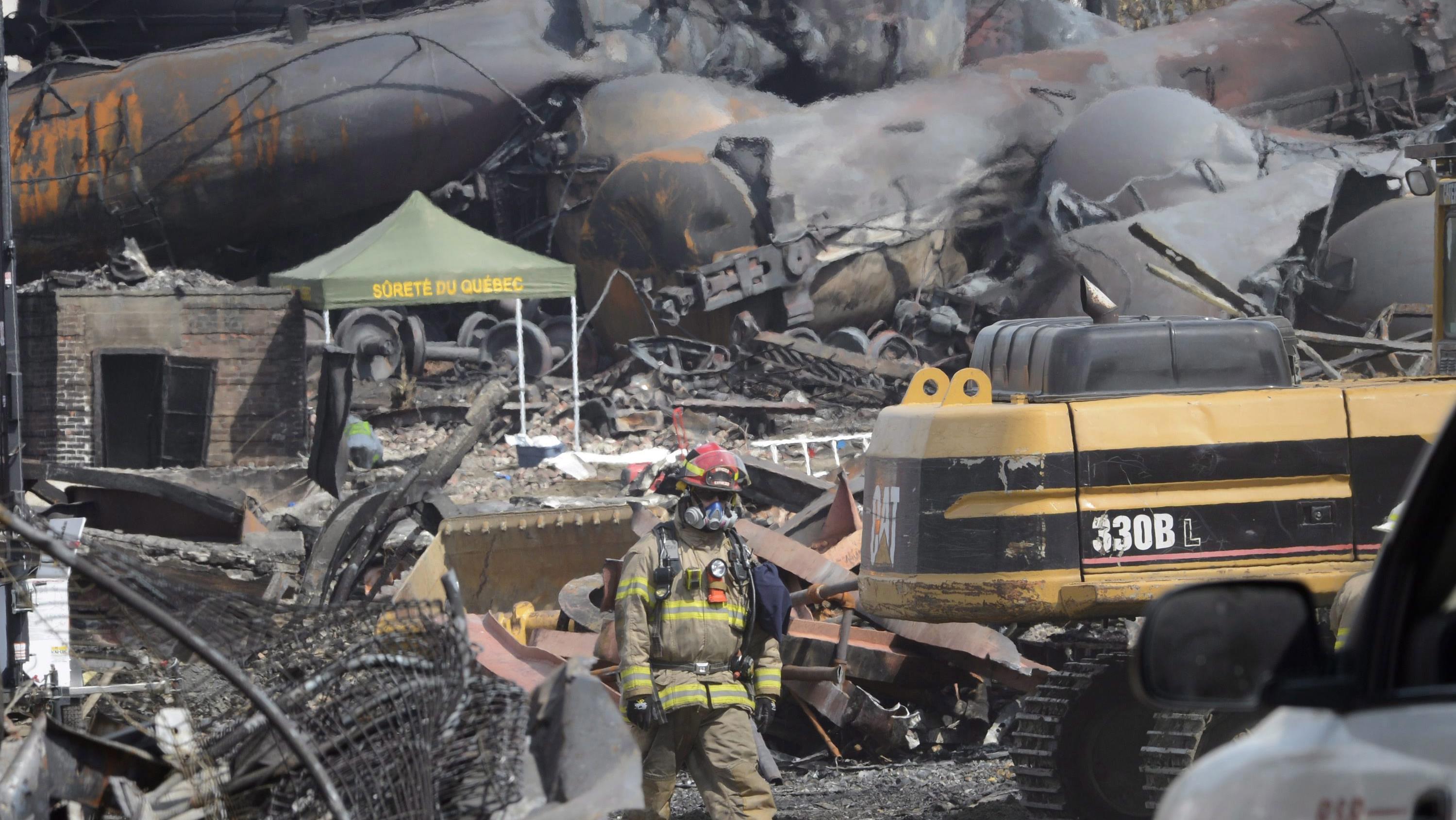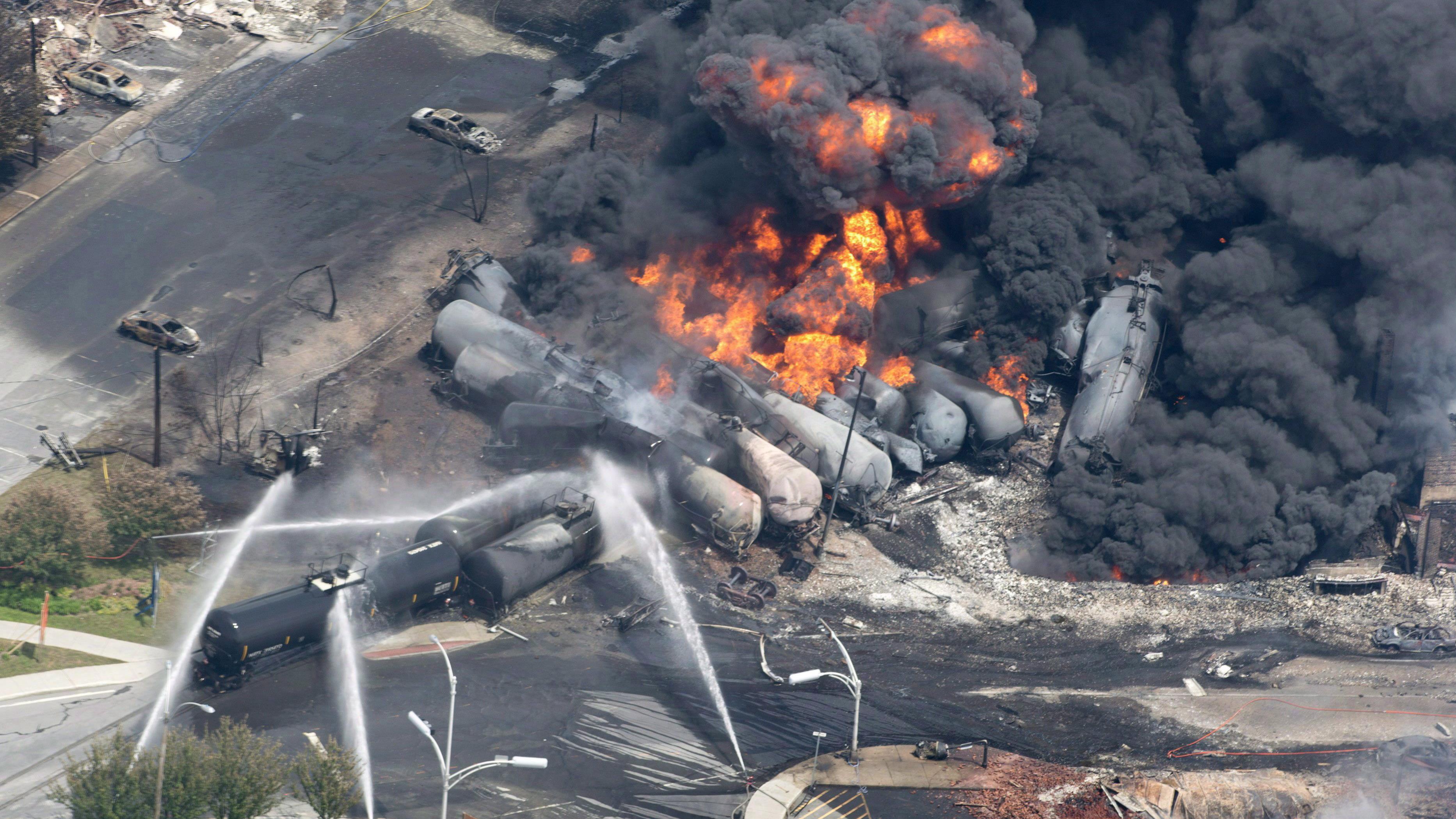A jury in the Canadian city of Sherbrooke acquitted on Friday all the three men charged in one of the worst train disasters in Canadian history that killed 47 people in the city of Lac-Mégantic on July 6, 2013.
Former railway operations manager with Montreal, Maine and Atlantic Railway Jean Demaître, 53, locomotive engineer Thomas Harding, 56, and traffic controller Richard Labrie, 59, were on trial for criminal negligence causing the death of 47 people.
“We’re very satisfied with the verdict and we think that again that this is the proof that the institution of trial before jury is an important one in our democratic system,” Harding’s lawyer Tom Walsh told reporters outside the courtroom.
Jean Clusiault, who lost his daughter Kathy in the explosion, praised the verdict outside the courtroom.
“These are human beings with families who worked hard all their lives,” Clusiault told CBC News.
“These aren’t killers. We treated them like killers.”
The three men were charged after a runaway train carrying volatile Bakken crude oil barrelled into the town of Lac-Mégantic, about 245 kilometre east of Montreal, on July 6, 2013, killing 47 people and destroying the town’s core.

All three had pleaded not guilty.
Walsh said the case should have never gone to trial to begin with.
“I always thought that the trial was too focused on the number of individuals,” Walsh said. “I believe the crown should have taken a broader approach to this and looked at all of the different factors that contributed to this tragedy, which they didn’t do.”
It would have been more proper if there were some kind of a public inquiry to look into all of the circumstances and causes of the disaster, not just the role of the three accused, Walsh said.
The eight men and four women on the jury had been deliberating since Thursday morning, Jan. 11, at the Sherbrooke courthouse, after a marathon trial which began last September. The trial heard from 31 witnesses. Harding, Labrie and Demaître waived their right to testify in their own defence.
Quebec Superior Court Justice Gaétan Dumas told jury members that they were charged with rendering three separate, unanimous verdicts based solely on evidence presented during the trial.
The trial judge added that neither the now-defunct Montreal, Maine and Atlantic Railway that owned the derailed train, nor its administrators were on trial.
The trial involved only the three employees accused of being individually and independently criminally negligent for their actions leading to the derailment between July 4-6, 2013, he said.

However, the acquittal is not the end of the trio’s legal troubles.
Harding is also facing federal charges of non-conformity with federal transport rules, particularly on the rules of securement of the train, later this month, Walsh said.
“We have always admitted that he was not in complete conformity with the rule and he’s going to have to face the music on that charge, which is much more appropriate than the charge of criminal negligence,” Walsh said.
In its report into disaster, Canada’s Transportation Safety Board (TSB) blamed a “weak safety culture” for the deadly train derailment.
It all began on the night of July 5, 2013, at around 10:50 pm, when Harding parked the 72-car train laden with North Dakotan Bakken crude oil on a descending grade in the town Nantes, about 12 kilometres northwest of Lac-Mégantic.
After shutting down four or the five locomotives, Harding applied seven hand brakes, according to the TSB report.
Railway rules require that hand brakes alone must be capable of holding a train, which must be verified by a test.
The TSB investigation however found that Harding left the locomotive air brakes on during the test, meaning the train was being held by a combination of hand brakes and air brakes.
Harding left the train to be picked up by another crew in the morning. He warned the dispatcher that he had experienced smoke problems with the lead locomotive.
Shortly after he left, a fire broke out in the smokestack of that lead locomotive. The firefighters who were called in to extinguished the fire, followed railway procedures in shutting off the locomotive’s fuel supply and the electrical breakers, which in essence disabled the train’s air brakes.
With all the locomotives shut down, the air brakes began to weaken their hold the locomotive and about an hour later it began to roll downhill towards Lac-Mégantic.
On the more than 11-kilometre stretch of the railway from Nantes to Lac-Mégantic in what is Canada’s second steepest grade, the train picked up speed, reaching a top speed of nearly 105 km/h when it barrelled into the town.
It derailed and exploded at about 1:15 am on July 6 near a popular local tavern filled with weekend celebrants, killing 47 people. The blazing inferno also forced the evacuation of the entire downtown with more than 2,000 having to flee at moment’s notice.

During the trial the jury heard that Harding had risked his life to move unexploded railway cars to a safe distance to avoid an even bigger disaster.
No matter the verdict, his client’s life has been forever changed, Walsh said.
“He’s always going to be the poster boy for the Lac-Mégantic tragedy whether we like it or not,” Walsh said.
Harding has always admitted his responsibility and has to live with that burden, Walsh said.
“His only claim was that that responsibility was not the equivalent of criminal negligence but he certainly has a share of the responsibility,” Walsh said. “He will always feel a tremendous moral responsibility and he will never be able to rid himself of that feeling.”
With files from CBC News







For reasons beyond our control, and for an undetermined period of time, our comment section is now closed. However, our social networks remain open to your contributions.